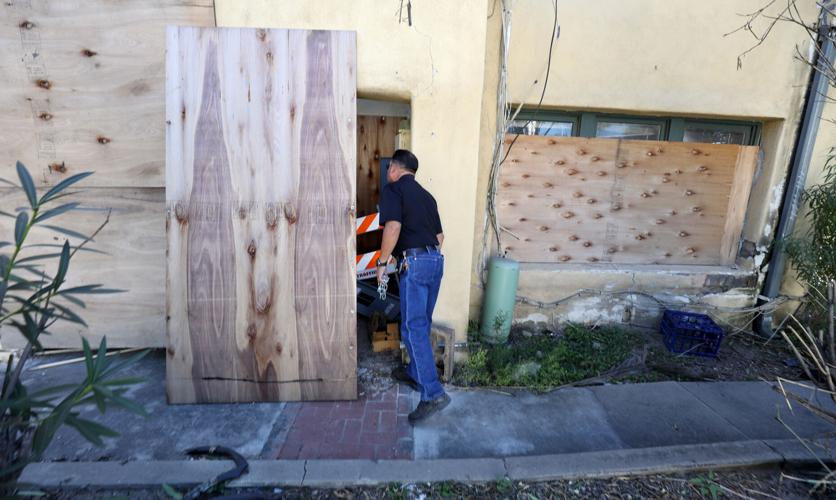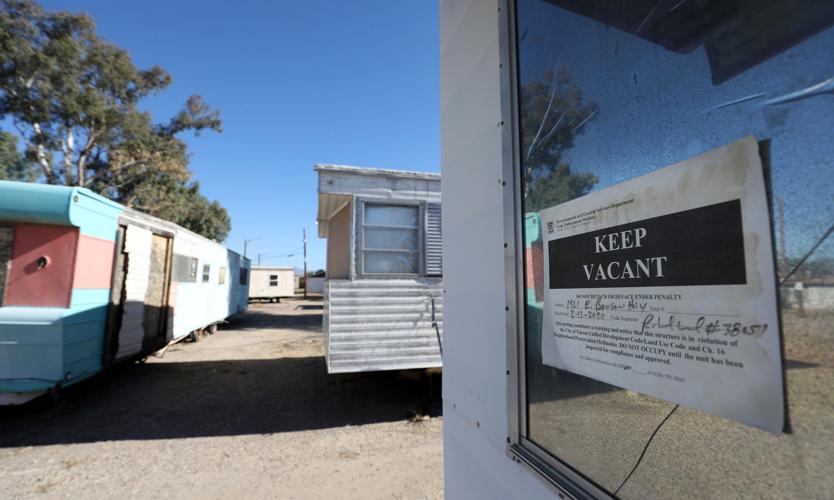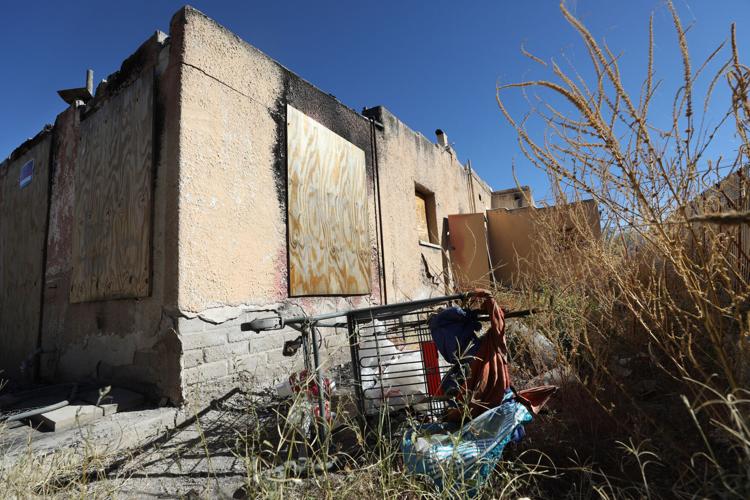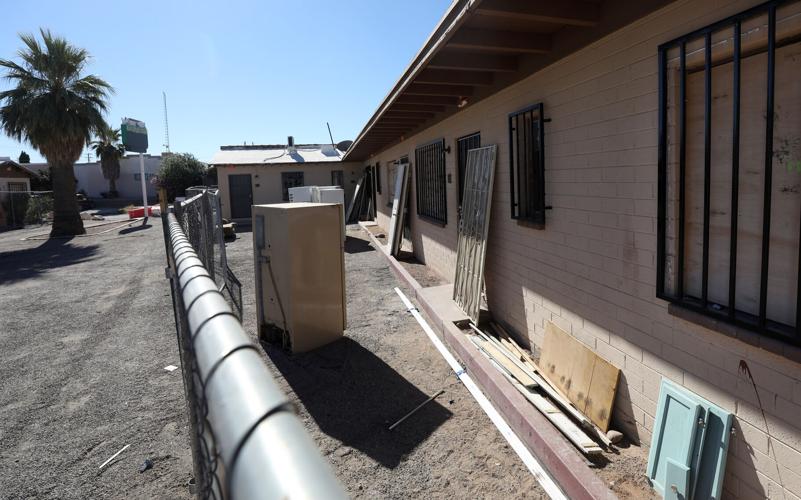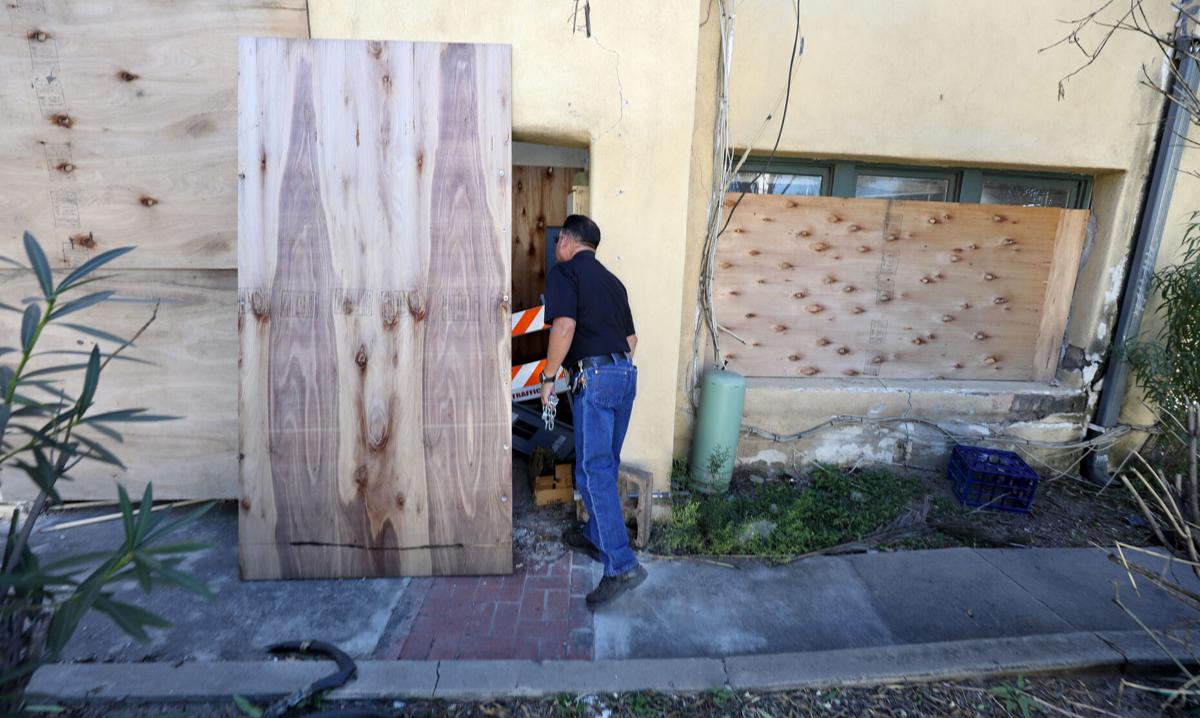Tucson’s understaffed Code Enforcement Division has been unable to handle the number of cases it has received this year, leading to a backlog of over 1,400 complaints concerning violations that can impact resident safety, property value and quality of life.
The division has a staff of 17 full-time employees who enforce city rules ranging from zoning codes to tall weeds in yards and junked vehicles, to building safety.
Inspectors make sure homeowners maintain their property and do not build structures that will devalue the neighborhood, for example. They also decide whether to demolish buildings if they’re liable to collapse because of structural damage.
But staffing problems and a large jump in cases have crippled the division’s ability to fulfill those duties, leaving residents wondering if their complaints have fallen into a “black hole” while nearby code violations threaten to tank their property values.
“Our residents feel the system is broken,” said Councilman Steve Kozachik. “They don’t know the status of what’s happening as this thing kind of wanders through the process.”
Kozachik and other city officials do not share the view that the system is “broken.” They say the issue was created by a combination of problems that have eroded and overloaded the code enforcement effort to the point that it’s no longer effective.
Plans have been set in motion to fix the problem — such as hiring more staff, changing division practices and creating disincentives to deter residents from ignoring citations — but it is unclear when residents will start seeing the results.

City code inspector Juan Valdez said he found syringes mixed among the trash at the front of three historic but neglected apartment units on private property that have been condemned by the city of Tucson.
Staffing cuts, the pandemic and a surge of cases
Since 2006, the Code Enforcement Division has lost about 60% of its staff. Carlos De La Torre, who currently oversees the division, said the position cuts may have been a result of the financial hit Tucson took during the Great Recession.
Staffing levels had remained the same for at least the past seven years until the pandemic further diminished the division’s work force.
“Ten out of the 17 positions were impacted by COVID,” said De La Torre, who is the director of the Environmental and General Services Department that houses the Code Enforcement Division. “Quite frankly, we were very lean, and we were not really equipped to handle the surge number of cases we have seen.”
A number of factors created the unmanageable “surge” in enforcement cases that buried the division as it was trying to cope with the pandemic-related staffing challenges.
The summer’s heavy monsoon, for example, required code enforcers to mediate a number of complaints related to storm damage. More homelessness activity also demanded code enforcement to disperse camps blocking city rights-of-way, while increased levels of construction required long-term case processing.
The number of cases in 2021 is on track to be higher than it has been in the past three years, though it may have been more manageable if an earlier plan to protect against the recent overload problem had been successful.
City officials developed an approach in 2017 that tasked community service officers, who work for the police department, with handling weeds or junked car cases. Such complaints represented a fifth of the division’s cases this year, but the plan failed because of separate staffing issues in the TPD.
“That was one of those ideas where it was a great idea, but what ended up happening was those resources, under my direction and approval, were deployed to police to help sure up some of the staffing issues they were having on their end,” said City Manager Michael Ortega.
Tucson’s code enforcement office already handles more cases with fewer employees than other major cities in Arizona and across the country.
Both Phoenix and Glendale have separate offices that handle long-term building safety cases. City code enforcers in Austin handle those cases but have nearly five times more inspectors per-capita than Tucson.

Condemned mobile homes at 1421 E. Benson Highway are cited for illegal additions and unsafe electrical and plumbing. Inspectors say they have found squatters and illegal activity and have forced the owner to board up the homes. The property has been targeted for code enforcement for nearly three years.
To make matters worse here, about half of Tucson’s current code enforcement staff is set to retire in the “next few years.” De La Torre said it’s going to be a “big hit” because the division will lose a tremendous amount of experienced employees in such a small period of time.
“This is critical because of the magnitude of the scope of the work, not only in terms of attending to normal priority calls, but high-priority and emergency calls,” said De La Torre. “If we don’t shore up ourselves, we can certainly put ourselves and a lot of citizens at risk. That’s why we want to make sure that we do our best to maintain good staffing levels.”
A plan to fix
City staff presented a plan to address the code enforcement problem at Tuesday’s city council meeting. The strategy focuses on addressing the current caseload, shortening the case process to prevent buildup, and taking steps to squash violations proactively.
The division is onboarding two temporary customer service clerks who will process the 1,400 backlogged complaints, a step that needs to happen before a case can even be created. Five more inspectors will also be hired to handle the excess cases as quickly as possible.
Funding is available for those positions, according to a city memorandum.

A historic adobe home on Eighth Avenue, south of downtown, was the scene of at least two fires. The city condemned the structure pending renovation and demolition of an illegal addition.
“The intent is to infuse a few customer service representatives to make sure that we can process those through our system,” said De La Torre. “That’s the initial step to be able to get caught up in terms of those outstanding cases in a relatively short period of time.”
The division will speed up the case process by taking measures to work around the court system when possible, which could reduce case times by months in some instances.
For example, officials hope to use a “reinspection fee” to prompt residents to fix small violations before they have to go to court. De La Torre said the fee was previously abolished, but that it is necessary to avoid drawn-out cases over small issues.
A “quick response team” is another strategy that will be used to speed up the process. Team members will identify certain code violations, notify the owner and then enter the property after 30 days to resolve the problem.
The process does not require the court’s involvement, and the city can recollect any money spent during the process after the case is closed.
Proactive efforts will include the revival of the “Bush and Bulk Program.” The Code Enforcement Division previously picked up bulk materials from residents twice a year under the initiative, which helped prevent future code violations from occurring.

Apartment units are secured with plywood and wrought iron at the former Casa Linda Motel near Oracle and Grant roads while undergoing renovations by the owner. The city of Tucson ordered demolition of one building that was beyond repair and used by squatters for illegal activity. The city ordered fencing around the entire complex to prevent break-ins and illegal activity.
The program relied on prison inmates to do the heavy lifting, however, and it was discontinued as a COVID-19 mitigation measure.
“If we know that we’re going to be there twice a year, we can really create a plan or approach where we’re addressing a lot of the community a neighborhood needs on a proactive basis,” De La Torre said.
He added that during those proactive sweeps, staffers can interact with community members to address issues that may otherwise be added to the code enforcement caseload later on.


